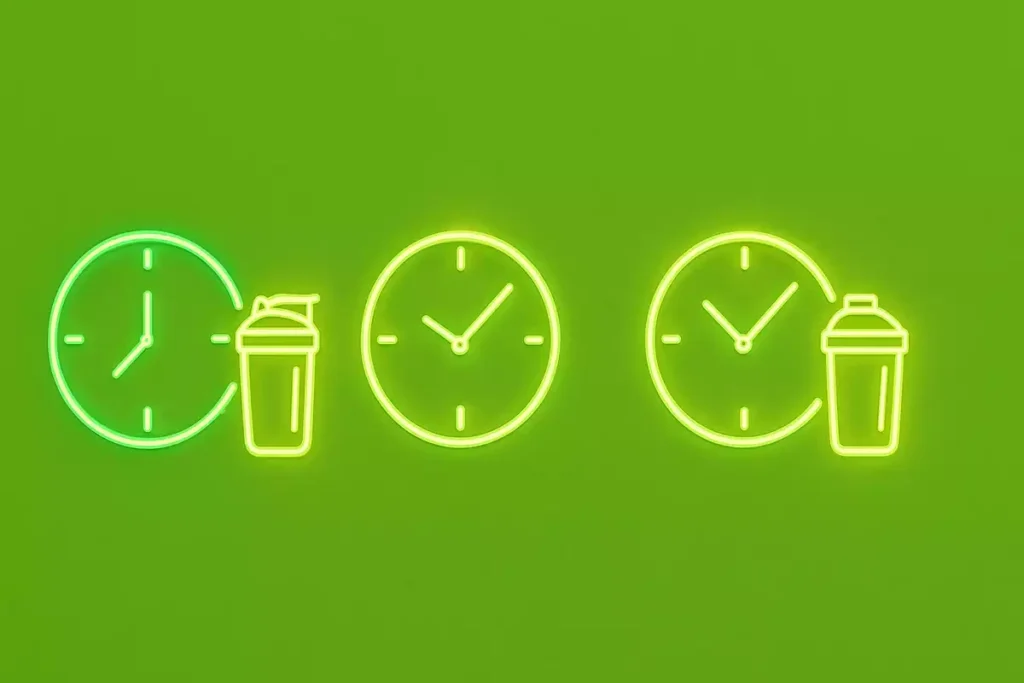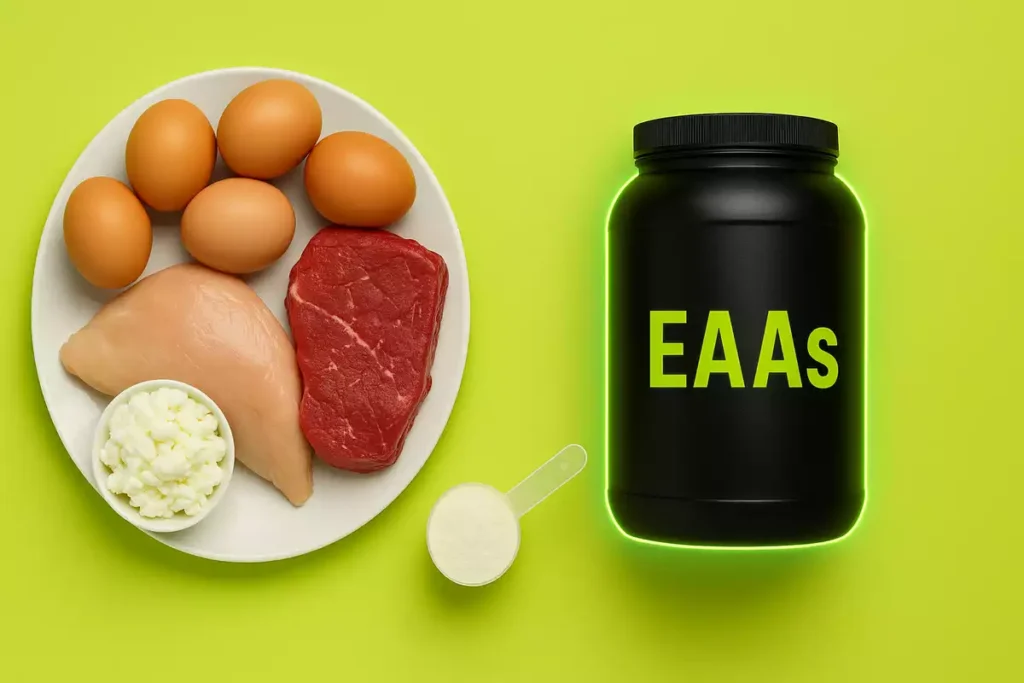Are you skipping EAAs on rest days, thinking they’re only useful around workouts? You might be slowing down your recovery without realizing it.
The truth is, your muscles don’t stop needing fuel just because you’re not training. In fact, rest days are when the real muscle-building magic happens.
That’s exactly why taking EAAs on non-training days can be a game-changer—especially if you’re cutting, fasting, or trying to hold onto muscle.
Let’s break down the real benefits, best timing, and what I’ve learned from both personal experience and coaching hundreds of clients.
Table of contents
Quick Answer – Yes, and Here’s Why
Absolutely. You should take EAAs on rest days—especially if you’re cutting, eating in a calorie deficit, or aiming to preserve lean muscle while recovering.
I do it myself, and I recommend it to my clients too.
EAAs (Essential Amino Acids) help prevent muscle breakdown, support muscle repair, and keep recovery on track—even when you’re not hitting the gym.
Think of it this way: your muscles grow when you rest, not just when you train.
What Are EAAs & How They Work on Rest Days

EAAs are the nine essential amino acids your body can’t make on its own. You need to get them from your diet—or supplements.
On training days, you might take them pre- or intra-workout.
On rest days, they still play a vital role behind the scenes—helping with muscle repair, protein synthesis, and keeping your hard-earned gains safe.
When your protein intake is low or you’re in a calorie deficit (especially common during cutting), EAAs act like a safety net.
I often take them first thing in the morning to break a fast and support muscle maintenance without adding calories.
If you’re looking for clean options, check out my guide to EAAs without artificial sweeteners.
Top Benefits of EAAs on Non-Training Days

Muscle Recovery & Reduced Breakdown
One of the biggest reasons I personally take EAAs on rest days is to minimize muscle loss.
Recovery is just as important as training. EAAs give your body the raw materials it needs to repair tissue after tough sessions.
I remember during a past cut, I skipped EAAs for a week on my rest days.
The result? I felt more sore, more drained, and my muscles looked flatter. Once I reintroduced EAAs, things improved within a few days.
To understand more, check out this breakdown on EAAs and recovery time.
Supporting Protein Synthesis
Even on rest days, your body continues to rebuild muscle.
If your meals are light on protein—or you’re intermittent fasting—EAAs help bridge the gap and keep protein synthesis going strong.
One of my vegan clients, Priya from India, took EAAs daily because her meals often lacked complete proteins.
She noticed better recovery and more stable energy when she stayed consistent, even on non-training days.
For plant-based lifters, here’s a full guide on EAAs for vegan muscle growth.
Curbing Muscle Soreness and Cravings
EAAs also help with muscle soreness. After a brutal leg day, I often feel stiff the next morning.
A dose of EAAs helps ease that tension.
Surprisingly, they even help with sugar cravings for some clients.
Mark from Sweden told me he noticed fewer late-night snack urges when he used EAAs regularly, even during his rest week.
Best Times to Take EAAs on Rest Days

Morning Fasted Window
This is my go-to. I take EAAs in the morning when I’m still fasted.
It gives my muscles something to work with without kicking off a full meal—especially helpful during cuts.
This timing also works well if you’re doing cardio before eating. I recommend checking my full guide to EAAs before fasted cardio.
Between Meals or With Low-Protein Meals
If your lunch or snack is light on protein, EAAs are a great add-on.
Think of it like plugging a leak in your recovery routine.
Some clients split their dose—half in the morning, half mid-day.
Works perfectly to keep muscle repair on a steady track.
How Much EAAs to Take When Not Training
You don’t need to change your dose. I stick with 10 grams on both training and rest days.
No need to overcomplicate it. The goal is consistency.
If you’re on the lighter side or eating high-protein meals, 5–7 grams may be enough.
But during intense phases—like deep cuts or competition prep—10 grams is the sweet spot.
Want to make sure you’re using the best product possible?
Here’s my roundup of the best EAAs with no fillers or junk.
Should You Skip EAAs If Diet Is High in Protein?

If your diet is already rich in complete protein sources and you’re not cutting or fasting,
you might not need EAAs every rest day.
But for most people—especially those with inconsistent meal timing, plant-based diets, or low-calorie days—EAAs are a reliable backup.
That said, I’ve worked with clients who eat high-protein diets but still benefit from EAAs for faster recovery and better hydration.
For those looking to combine EAAs with electrolytes, here’s my hydration mix guide.
Final Verdict – Worth It or Waste?
If you care about protecting muscle, improving recovery, and feeling less sore—then yes, EAAs on rest days are absolutely worth it.
I use them year-round. My clients do too. And if you’re serious about your fitness journey,
they can be a small habit with a big return.
Remember: muscles don’t grow during the workout—they grow during recovery.
EAAs help you make the most of that recovery time.
For a full breakdown on when to use EAAs effectively, check my timing guide for workouts.



Leave a Reply